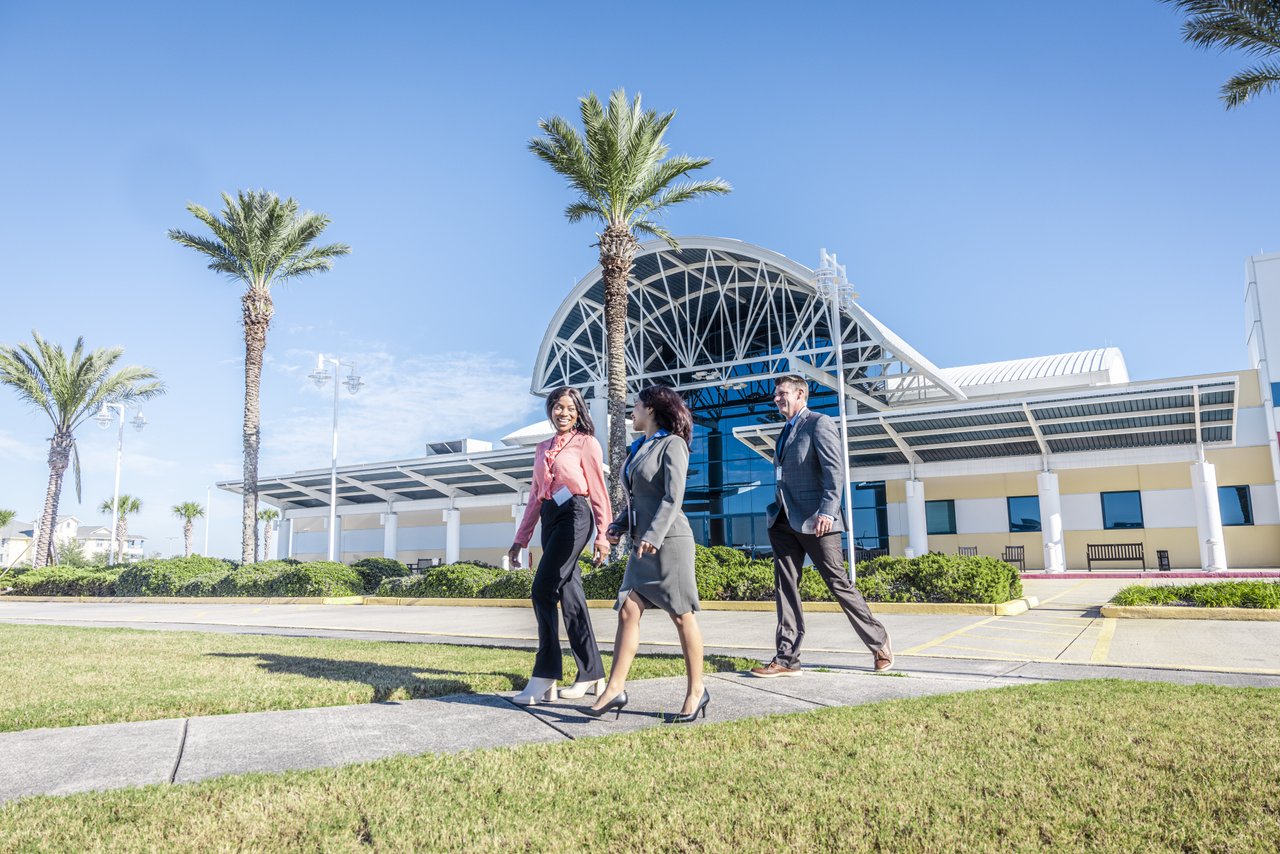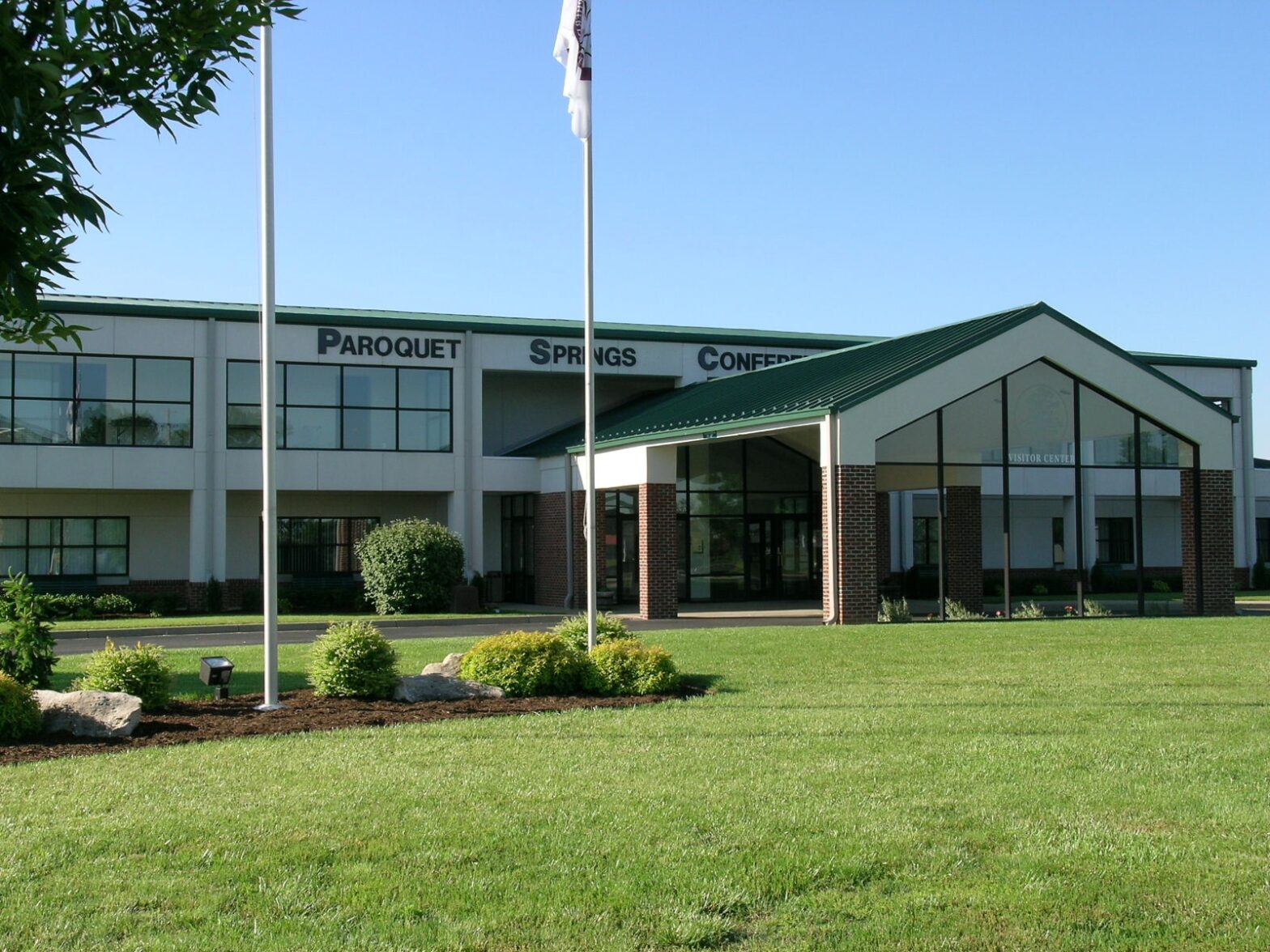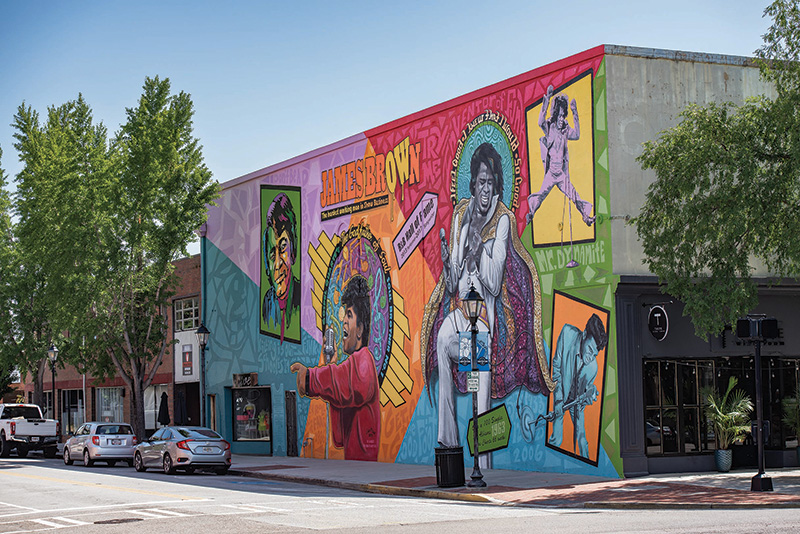
The South has long been a hotbed of musical innovation and creation. Bluegrass and folk came together in Appalachia and grew the roots of modern country music. The blues was a version of folk music sung by Blacks working in plantation fields, and later led to the birth of the soulful sound of rhythm and blues (R&B). The vibrancy of Southern gospel was a natural product of the churches. Musicians in New Orleans drew from all of these musical styles to create jazz. Rock music did the same, but added amplification and energy.
The South’s rich musical history continues to influence many aspects of contemporary entertainment and business. Planners can bring a fun musical vibe to meetings and events in Southern destinations with storied music connections and heritages. Combining music and meetings brings an exciting energy to all types of events and allows attendees to discover artists and explore music venues and museums beyond their own musical interests and familiar haunts. Tune in to these music-rich destinations and add them to your meetings and events “playlist.”
Augusta, Ga.
When one of your native sons is counted among the greatest musicians of all time, you’re pretty much required to talk about it. Although not the city’s only calling card, Augusta is mighty proud to be the former home of R&B legend James Brown, the “Godfather of Soul.” City leaders have found many ways to highlight the Brown connection, including marketing Augusta as the “Feel Good” city—a nod to the catchy lyrics from Brown’s biggest hit, “I Got You (I Feel Good).”
“Brown’s legacy has undeniably boosted Augusta’s visibility among event planners, giving the city an instantly recognizable cultural hook,” says Iman Fahmy, director of group business development for Destination Augusta.
Between the late ‘50s and early ‘60s, Brown had 17 singles to hit No. 1 on Billboard magazine’s R&B charts, including “I Got You (I Feel Good),” which hit No. 3 on the Hot 100 chart in 1965. Brown died in 2006.
“Conferences and conventions often incorporate James Brown-themed events, photo ops, or tours into their agendas, adding a uniquely local, high-energy element that resonates with attendees,” Fahmy says.
To that end, the city, approximately two hours east of Atlanta, offers several Brown-related features.
The James Brown Journey is a self-guided tour of notable sites tied to his life, including his childhood home, which offers tours by reservation, his early performance venues, and Bell Auditorium, where he performed many times.
For a more structured exploration, you can take the guided James Brown Family Historical Tour, which includes visits to many of the same sites and also Brown’s home, where he lived as an adult; it contains such items as a Christmas tree from the year Brown died, personal hair products, and various pairs of his sunglasses.
The Augusta Museum of History houses a standing exhibit dedicated to Brown and the largest collection of his memorabilia in the world, including costumes, awards, and personal items.
One of Brown’s favorite places to eat and hang out, the Soul Bar remains a funky venue in downtown Augusta. It features several James Brown murals and a mix of live music and DJs.
James Brown Arena holds 10,000 for concerts, which have included Elton John, Van Halen, Bon Jovi, and Kiss. It also has rooms for meetings, classes, and receptions.
When it comes to music, Augusta isn’t all-James-all-the-time. It offers several other musical opportunities year-round.
“While Brown’s influence is a central part of Augusta’s identity, the city’s music scene extends far beyond one legendary figure, making it an ideal destination for groups and conventions seeking a vibrant, soulful atmosphere,” Fahmy says.
The Arts in the Heart of Augusta Festival, held each September, is a multicultural event featuring live music across multiple stages, with everything from jazz to alternative rock, blues, and global beats.
In spring and summer, the August Riverwalk hosts occasional performances, ranging from symphonic to popular bands, while Miller Theater and Imperial Theatre offer concerts, musicals, and community events year-round.
Home of the annual Masters Golf Tournament in April, Augusta is familiar with large groups of visitors. It has 7,500 guest rooms in more than 70 hotels. The Augusta Convention Center offers 100,000 square feet of adaptable event space.
Chattanooga, Tenn.
Chattanooga has a well-deserved reputation as a place for outdoor adventures. Whether it’s hiking, kayaking, mountain biking, camping, or simply enjoying nature, the city is filled with open-air opportunities.
The same can be said for its music scene.
Chattanooga hosts three ongoing music events, all outdoors: Nightfall, 3 Sisters Music Festival, and Riverfront Nights. Nightfall and Riverfront Nights offer just about every genre of music—rock, blues, soul, electronica, folk, reggae, bluegrass, and world music, to name a few. Bluegrass is the mainstay of 3 Sisters.
A new addition to Chattanooga, the International Bluegrass Music Association held its annual weeklong conference in the city this past September. Previously held in Raleigh, N.C., for the past seven years, it attracts thousands of bluegrass musicians from around the world. The event will return to Chattanooga in 2026 and 2027.
“Music has always been part of Chattanooga’s DNA, and it continues to be one of the top reasons people visit,” says Barry White, president and CEO of Chattanooga Tourism Co. “Our research shows that nearly seven in 10 overnight visitors take part in live music, nightlife, or cultural entertainment during their trip, which is higher than the national average. For event planners, that means choosing a destination where music truly drives visitation, community pride, and memorable experiences.”
Even with the numerous music-related activities in the city, there are ample accommodations—with 13,000 hotel rooms citywide, including 2,600 in the downtown area.
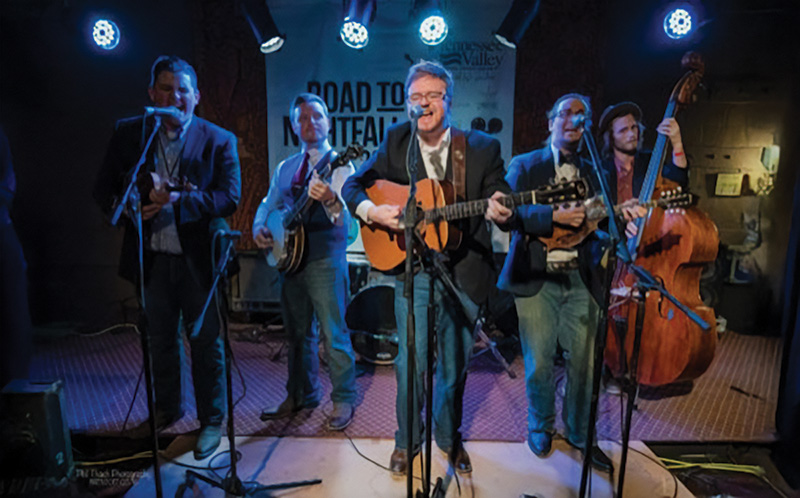
Nightfall is Chattanooga’s oldest musical event, having started in 1987. Each Friday night from May through early July, two bands play in Miller Plaza downtown. It is free to attend and features a blend of music genres.
Riverfront Nights is a free series of weekly shows, running from late May through late August. Like Nightfall, it is free to attend and is held next to the Tennessee River on Ross’s Landing.
Three Sisters Music Bluegrass Festival also takes place at Ross’s Landing, where it has been held for 17 years. National, regional, and local acts are scheduled over its two days in October.
Further cementing the music scene in Chattanooga, the Big 9—a nickname for Ninth Street, which was renamed Martin Luther King Jr. Boulevard in 1981—was one of the nation’s most vibrant areas for Black-owned businesses, with stores, restaurants, and music clubs from the early 1900s until the mid-‘60s. Such artists as Duke Ellington, Ella Fitzgerald, James Brown, Louis Armstrong, and Jimi Hendrix performed in its clubs. The Bessie Smith Cultural Center (named after the Chattanooga-born “Empress of the Blues”) and Chattanooga African American Museum on MLK Boulevard includes an exhibit telling the Big 9’s story.
Bessie Smith’s Big 9 Music Fest Southern Soul festival debuted in 2016 as a free, two-day event featuring blues, soul, gospel, reggae, and world music artists—all family-friendly. The 2025 music festival, which organizers say attracted approximately 80,000 people over four days, was held in June; dates for 2026 have not been announced.
More music culture can be found at Songbirds Guitar and Pop Culture Museum, which has more than 1,700 guitars. Many are rare and celebrity-owned, such as Dolly Parton’s Fender Acoustasonic and others linked to Chuck Berry, Bo Diddley, Roy Orbison, Carl Wilson of the Beach Boys, and Robby Krieger of the Doors. Located on Main Street downtown, it also features concerts by bands and solo performers, and can be rented for private events.
Jacksonville, Fla.
Meeting and event groups might not hear someone shout “Free Bird!” in Jacksonville, but it’s a familiar chant in the birthplace of Southern rockers Lynyrd Skynyrd.
Several members of the famous band grew up in Jacksonville. In fact, the band’s name was inspired by their gym teacher, Leonard Skinner, at Robert E. Lee High School (now Riverside High), after he disciplined them for having long hair.
While there is no official tour of Skynyrd-related sites, there are still several to visit.
Lynyrd Skynyrd vocalist Ronnie Van Zant, guitarist Allen Collins, pianist Billy Powell, and bassist Leon Wilkeson are buried in Riverside Memorial Park Cemetery. Van Zant died when the band’s tour plane crashed in 1977.
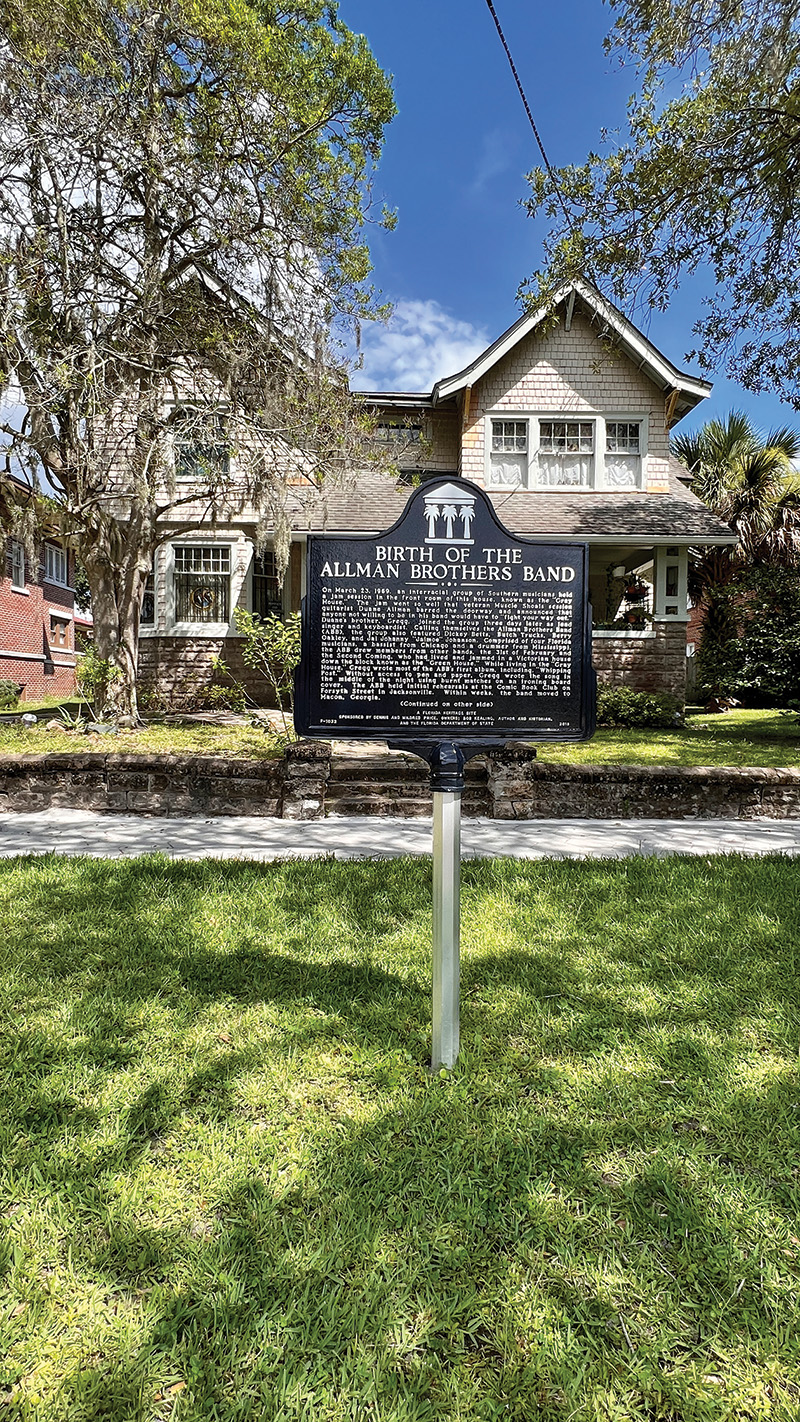
The house where Van Zant lived with brothers Donnie and Johnny—now vocalist in the still-active Lynyrd Skynyrd—was named a Florida Heritage site in 2018. It has been restored to reflect the style of homes during the ‘70s and is available for overnight stays, providing guests with a nostalgic experience and retro vibe.
Although Molly Hatchet also hails from Jacksonville, the city has a much deeper musical history beyond Southern rock. Members of rap-rockers Limp Bizkit grew up there. The Allman Brothers first jammed at the city’s Gray House and played their first professional gig at the Jacksonville Armory.
Jacksonville’s musical heritage also has ties to the Civil Rights Movement.
The Ritz Theatre and Museum features an exhibit about brothers James Weldon Johnson and Rosamond Johnson, songwriters and composers who worked together to write music and lyrics, including the famous “Lift Ev’ry Voice and Sing,” which became an anthem for the Civil Rights Movement. In the museum, an animatronic figure of each brother talks through their writing process for the song.
The Ritz is located in the LaVilla neighborhood, sometimes called the “Harlem of the South.” During the Jim Crow era of segregation, Black-owned clubs like Lenape Tavern and Bar and Buster Ford’s Bird Land held concerts by such acts as Dizzy Gillespie, Billie Holiday, James Brown, and Ray Charles.
“In May, the City of Jacksonville announced Music Heritage Park in downtown Jacksonville along the St. Johns River. The park will honor Jacksonville’s music heritage, and construction is expected to begin soon,” says Jeanne Goldschmidt, director of convention sales for Visit Jacksonville and the Beaches.
Two major music festivals also take place annually in Jacksonville, Goldschmidt notes.
Celebrating 25 years in 2025, Springing the Blues is a free festival held over three days each April. It features more than 20 national, regional, and local artists and bands.
The Jacksonville Jazz Festival, held over the Memorial Day weekend, has hosted such jazz legends as Miles Davis, Tony Bennett, Kenny G, Herbie Hancock, Dianne Reeves, and Dr. John in its 40-year history.
“We know tourists are coming to Jacksonville for both festivals because of the high caliber of artists that play them, as well as the fact that both are free,” Goldschmidt says.
With more than 19,000 hotel rooms at 173 properties, accommodations are readily available.
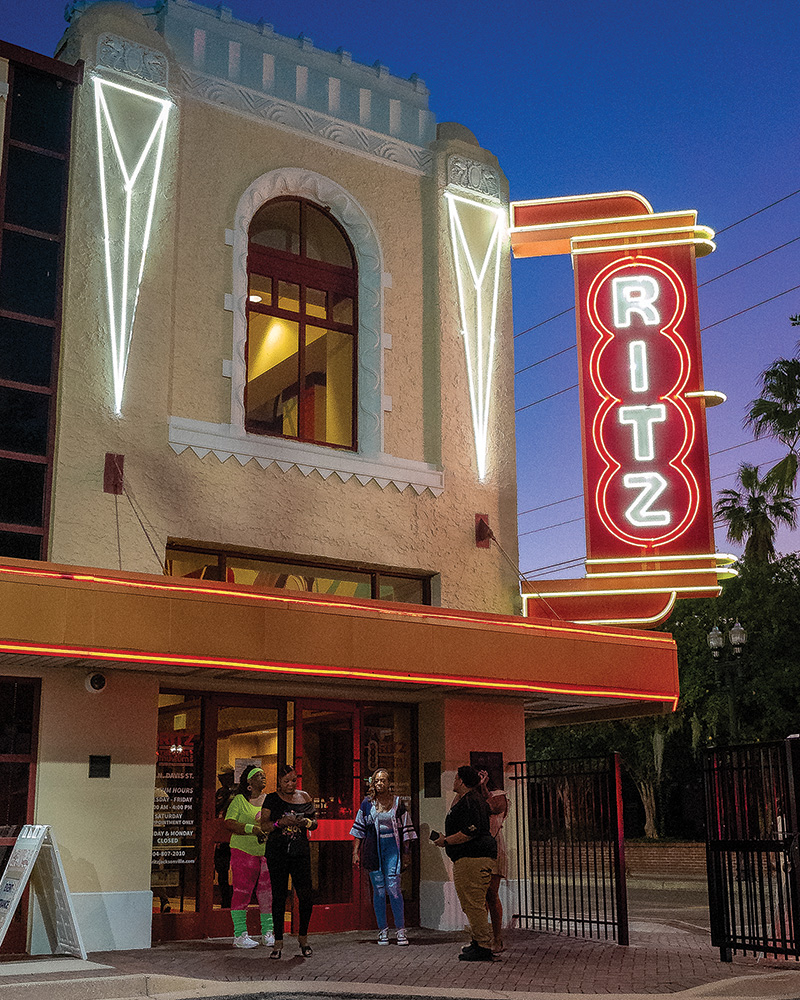
Tupelo, Miss.
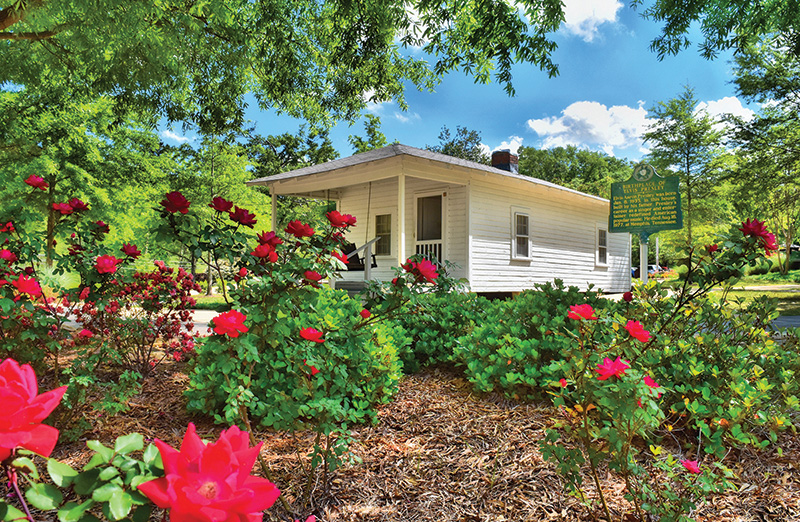
Elvis. Only one name is needed when talking about the “King of Rock ‘n’ Roll,” Elvis Presley.
Tupelo, Miss., the birthplace of Elvis, offers tours, festivals, and other events to honor its most famous son, who died at age 42 in 1977.
After meetings, attendees can visit the two-room house—built by his father for $180—where Elvis was born and lived until his family moved to Memphis, Tenn., when he was 13. The home is located inside the 15-acre Elvis Presley Park, which includes the Elvis Presley Museum and the Memorial Chapel, where he attended church as a child.
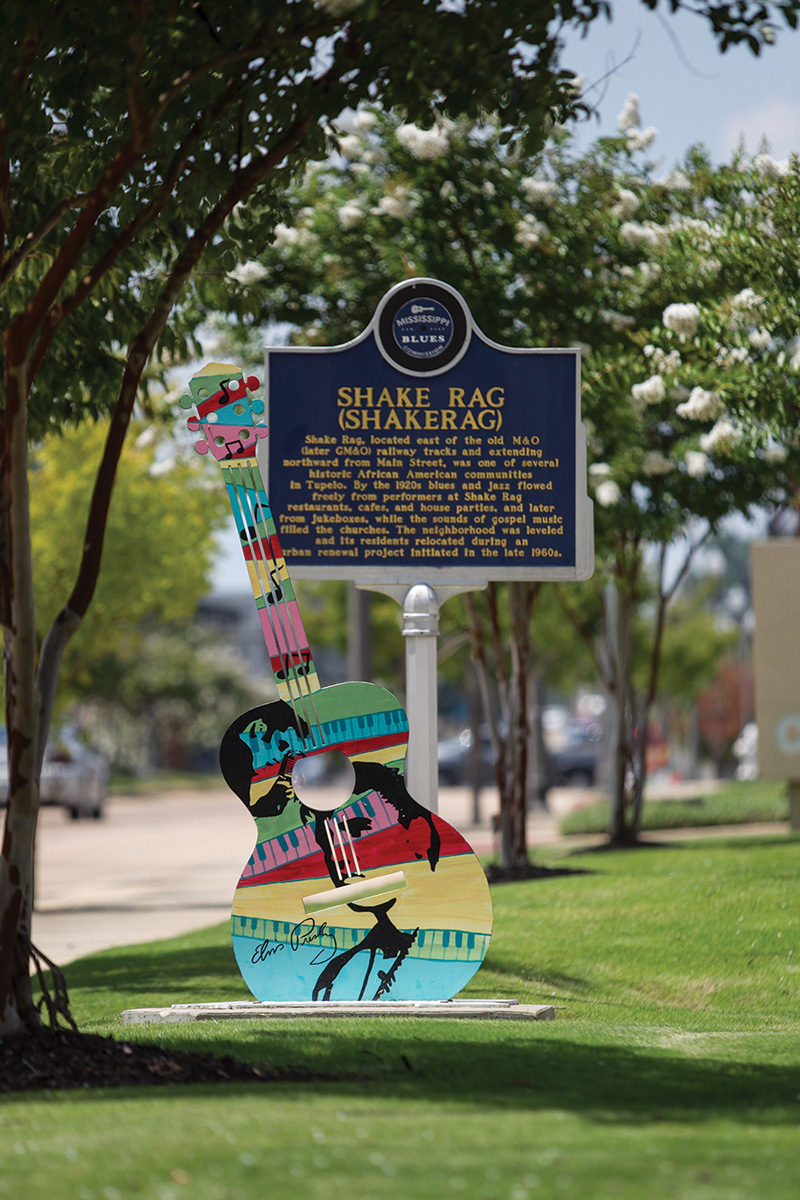
In downtown Tupelo, the Elvis Guitar Trail is a walking tour that takes visitors past more than 20 six-foot-tall sculptures of Elvis-themed guitars. On Main Street, attendees can stop in Tupelo Hardware Co., where Presley’s mother purchased his first guitar when he was 10 years old. A marked spot on the floor shows where Elvis stood when buying the guitar. There are also souvenirs, such as T-shirts and pins, documenting the sale.
For live music, the Tupelo Elvis Festival takes place over a three-day weekend each June. The festival also features a car show, an art show, a 5K run, and a competition by Elvis impersonators. Concerts honoring the “King” are scattered around town.
“The annual Tupelo Elvis Festival brings visitors from all over the world to celebrate Elvis’ impact on popular culture still today,” says Jan Pannell, sales manager
for Visit Tupelo.
Festival-goers can find a place to stay in more than 2,200 hotel rooms in the city, but they will find much more than that, Pannell says.
“Visitors explore the Elvis-related sites in Tupelo, but also enjoy the city’s more than 200 restaurants, stay in Tupelo’s accommodating hotels, and shop its three distinct shopping districts, making the festival a driver for tourism in the city.”
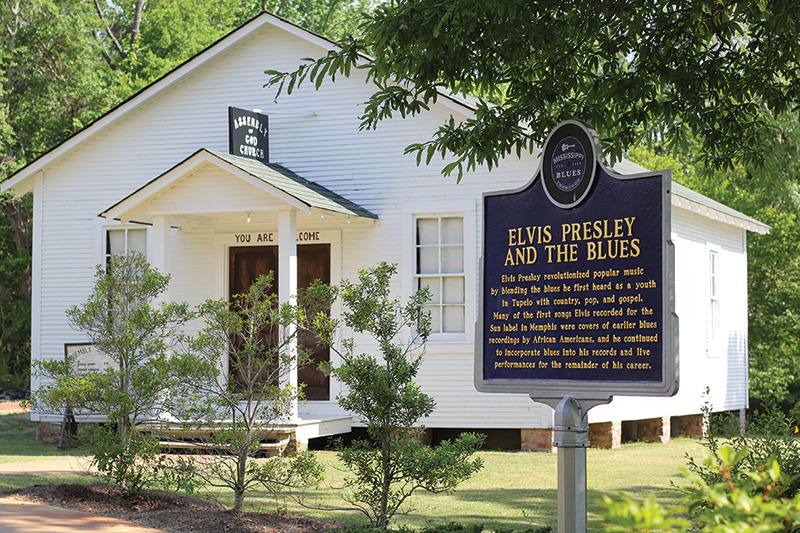
Music in Tupelo doesn’t stop with Elvis. The city is located near the center of the Americana Music Triangle, a region linking Memphis, Nashville, and New Orleans for their nine shared musical genres: blues, jazz, country, rock, R&B, gospel, Southern gospel, Cajun/zydeco, and bluegrass.
The Link Centre Monthly Music Mix has regular concerts from noted musicians, as well as open-mic nights, storytelling events, the Tupelo Improv Comedy Group, and other activities. Live music also is regularly on tap at The GIN and Blue Canoe. In addition, national music acts, including Travis Tritt in October and Jason Aldean coming in January 2026, play inside Cadence Bank Arena and Conference Center. The facility has more than 25,000 square feet of function space to accommodate meetings and events as well.
Wilkes County, N.C.
When you’re nestled in the foothills of the Blue Ridge Mountains, it’s almost required that bluegrass music be one of your highlights.
Wilkes County, N.C., more than meets that criteria. It’s home to the annual MerleFest, the biggest bluegrass/folk festival in the country. Held over four days in April in the county seat of Wilkesboro, it features 12 stages and more than 100 acts.
Calling itself a “traditional plus” festival, some of its artists move beyond the familiar acoustic sounds of bluegrass and incorporate bits of rock, blues, jazz, and other genres. Past performers have included blues-rocker Bonnie Raitt, country’s Emmylou Harris and Dolly Parton, folk rockers the Avett Brothers, soul-tinged the War and Treaty, and banjoist Bela Fleck, whose music is a blend of bluegrass, rock, blues, and jazz.
Of course, the majority of its lineups are bluegrass masters, such as Alison Brown, Sam Bush, Jerry Douglas, and Peter Rowan.
MerleFest was founded in 1985 by Wilkes County native Doc Watson, a highly influential folk musician known for his mastery of the flatpicking style of guitar playing. The music festival is named after his son, who died in a tractor accident on the family farm that same year. Doc Watson died in 2012.
The main stage at MerleFest, the Doc & Merle Watson Theater, is a 6,400-square-foot, production-friendly stage that can serve as a location for everything from a concert to a large-scale business event.
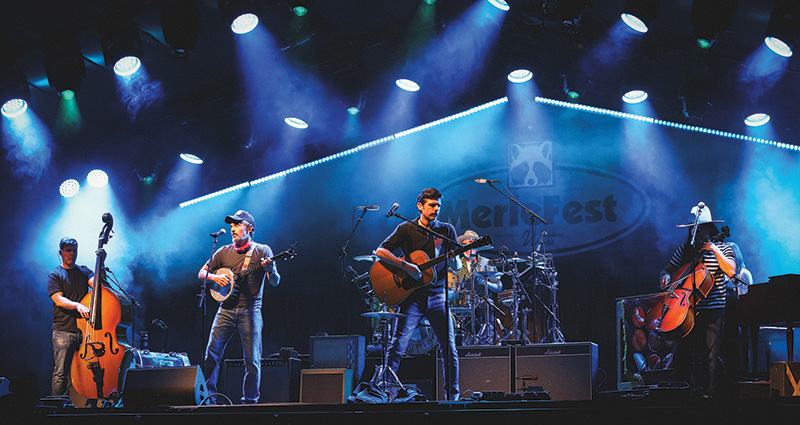
Two campgrounds are available for the festival, and Wilkes County has 315 hotel rooms in Wilkesboro and approximately 1,400 countywide.
MerleFest, though, only scratches the surface of Wilkes County’s music offerings.
The Blue Ridge Music Hall of Fame, located in the Wilkes Heritage Museum in Wilkesboro, features exhibits on the bluegrass history of a region stretching from north Georgia to northern Virginia. Available for tours, simply browsing on your own, or private events, the facility hosts an annual Hall of Fame induction ceremony held in March, which includes a jam session with many of its members. Hall of Fame inductees have included Doc Watson, Earl Scruggs, and the Carter Family.
Wilkes County’s musical history actually dates back to the Civil War. Native Tom Dula’s story is told in the folk song “Hang Down Your Head Tom Dooley,” a major hit for the Kingston Trio in 1958. Dula was a former Confederate soldier convicted of murdering his lover, Laura Foster, although her body was never found, and speculations about her fate have become the stuff of folklore.
“Music is a critical piece of the social fabric that makes Wilkes County such a unique destination and reflects the creative and self-sufficient nature of living in a remote mountain area,” says Thomas Salley, director of Wilkes County Tourism. “Music is an extension of the craft that enhanced everyday life. Folk songs like ‘Tom Dooley’ draw influence from local lore, preserve history, and serve as a cautionary tale for future generations,” Salley adds. “Music is a universal language, and, by way of Wilkes, an extension of a resilient community thriving with thinkers, doers, and innovators.”
With music flowing so strongly through the history and daily life of Wilkes County—the local Jones Von Drehle Vineyards and Winery has an outdoor stage for regular concerts and event space to accommodate up to 20 people—finding and hearing that universal language is a simple task when visiting for business or pleasure.
Traditional event venues include Yadkin Valley Event Center, which offers 5,000 square feet of meeting and event space, and John A Walker Community Center, which features a 5,100-square-foot ballroom and a 1,100-seat auditorium.
According to Salley, Wilkes County hosts family reunions, corporate and other retreats, religious events, and craft events, just to name a few. It also draws music events like the ResoGat conference, which Salley describes as a gathering of musicians dedicated to
the Dobro.
“Wilkes is a great meeting destination for small and medium-sized groups, thanks to our central location along the Eastern Seaboard and proximity to two of the state’s major airports (CLT and GSO are approximately an hour away), low costs, minimal red tape, and Southern, small-town, mountain hospitality,” Salley says. “Our musical roots, natural resources, and scenic attractions serve as a draw and enhancement to the scheduled activities.”


